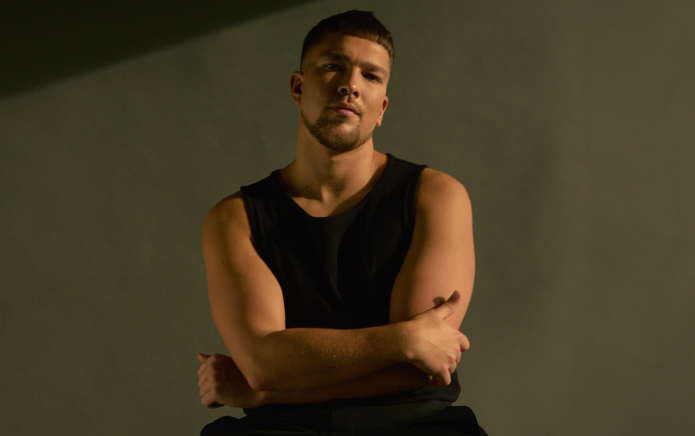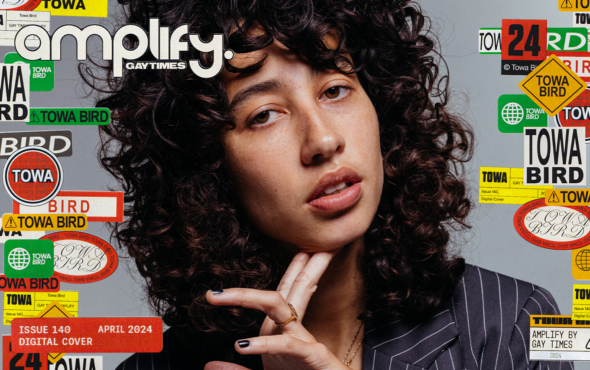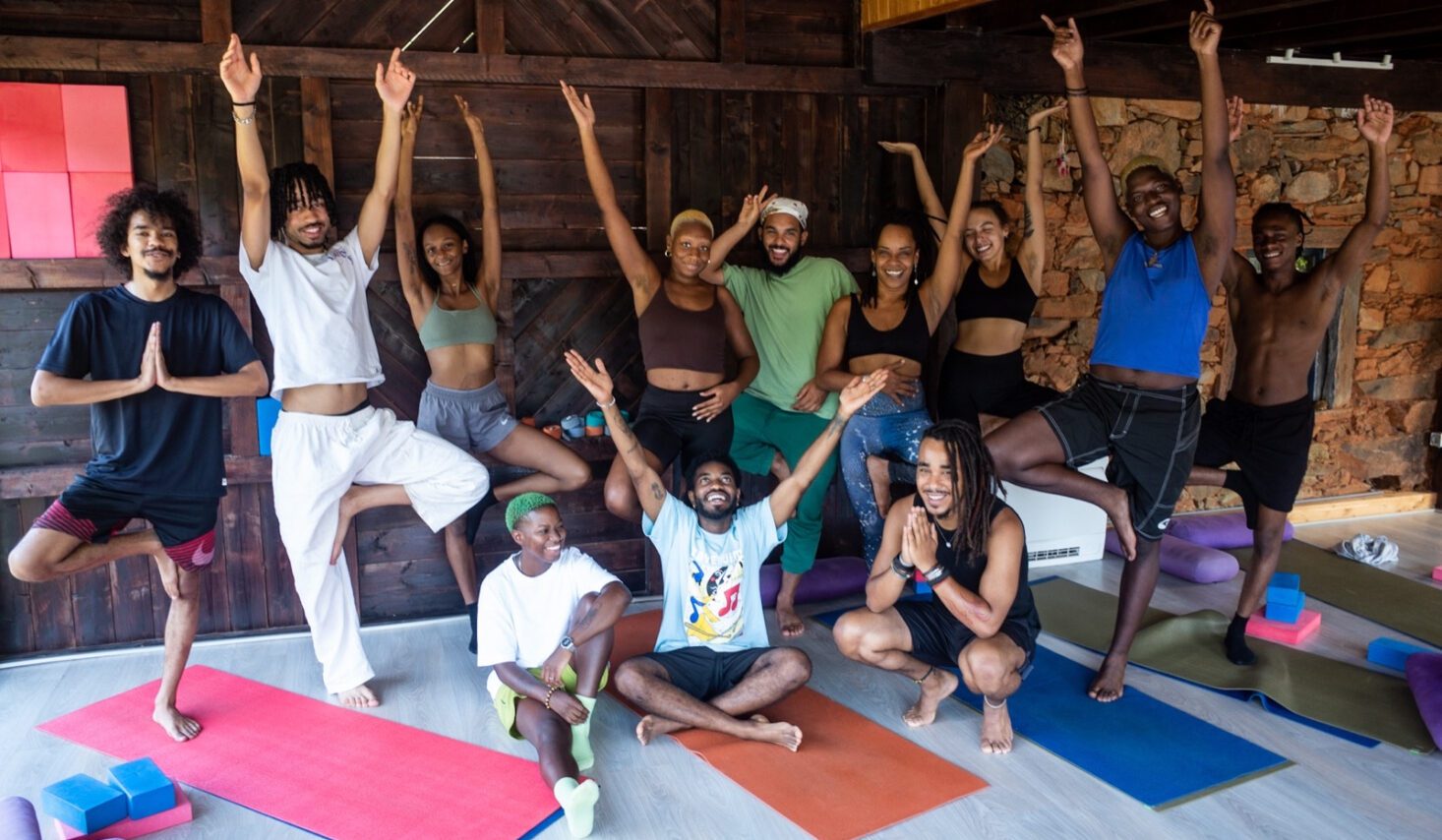
When the powder keg of racial tensions exploded in 2020 and Black suffering became primetime news, Jesualdo Lopez, like many Black people during this time, grappled with feelings of hopelessness in the face of widespread distress. Born and raised in Lisbon to Bisseau-Guinean parents, Jesu, a 22-year-old filmmaker and cultural curator, recognised how systemic racism was destroying lives closer to home. As protests erupted across Lisbon in August 2020 in response to the allegedly racially-motivated murder of Bruno Cande Marques, a 39-year-old actor and father, Jesu felt the fallout of this tragedy keenly, “I was just so frustrated and I realised that there were no safe spaces for Black people in Lisbon let alone queer Black people.”
Months later, the feeling persisted. After having moved to Leeds to study filmmaking, Jesu encountered a similar problem, “the city wasn’t very diverse so it felt like there was nowhere I could go to find a sense of community.” Being in the depths of England’s third national lockdown only intensified his isolation. Necessity being the mother of invention, Jesu decided enough was enough and in March 2021 he created The Blacker The Berry Project (TBTB), a Black LGBTQ+ collective operating between Leeds and Lisbon. The Blacker The Berry Project holds creative, cultural and nightlife events in order to spotlight the work of Black queer people. Jesu created the project in order to build community in the spaces where he felt bereft; hoping to become a hub to foster creativity and kinship for Black queer people in the places he called home. The project aims to allow queer Black people space to develop their talents and showcase their work; events include club nights with open DJ slots for upcoming DJs and art exhibitions with affordable entry costs to enable those at the centre of the work to be able to reap its rewards.
The project began with online events as lockdown restricted in-person gatherings, yet a community focus shone through even in the burgeoning stages; as the project offered a salve to the loneliness of lockdown, making finding a community accessible and enjoyable. “We began with a fundraiser where we live-streamed performances from Black queer artists to raise money for charities back in Guinea Bissau and in Lisbon, it was quite successful and we managed to get people talking,” Jesu shares. In Leeds, as the world began to open, the project collaborated with university Black feminist societies to curate debates and roundtable talk events where people could share their ideas and discuss hot topics in a protected space. “It was very wholesome,” Jesu reminisces, “it was a Sunday which just added to the vibes, it was so chilled and everyone was able to have a really honest discussion. The following month we hosted a club night and we were also able to host an art exhibition in Wharf Chambers in Leeds. We were lucky because Wharf Chambers actually provided us with a £500 grant to host that event.” The project began with a not-for-profit agenda as Jesu wanted to keep entry costs low for those attending the events; accessibility was at the heart of his work but this also meant that events were often reliant on the goodwill of larger organisations. Nevertheless, despite the project being headed by a one man team, Jesu’s mission was sprawling and ambitious from the outset. In May 2021, TBTB held an exhibition showcasing the work of Black femme and non-binary people in the iconic venue of Galéria Ze dos Bois in what was Portugal’s largest ever Black, queer-focused event.
TBTB quickly gained notoriety and a loyal fanbase in both Lisbon and Leeds but the process has not been without hiccups. In order to ensure that events prioritise queer Black people, Jesu applies a safer spaces policy to his nightlife events. Such policies are designed to remind attendees to be conscious of the space they are occupying and advise on appropriate boundaries for all to respect. Some example policies advise attendees to adopt gender-neutral pronouns when addressing people they don’t know, whilst others advise that those who don’t identify with certain marginalised identities pay more for tickets to ensure that events remain financially accessible to those most in need of community and most at risk of financial instability. Such policies are commonplace in queer nighttime spaces and are adopted by many other event nights designed to cater to a specific demographics, including Pxssy Palace and Hungama London. Yet, when TBTB tried to implement such policies on their UK events, they were met with backlash.
“Navigating the project in Leeds was difficult I found. In Lisbon, it was a little bit easier because the Black queer scene there is bigger so there was a ready-made scene to tap into, but the first time we sold out an event in Leeds, it was mainly white people and then the next day I had members of our Black audience coming up to me saying that they felt uncomfortable because X, Y, Z happened and it was hard to hear,” Jesu recalls. “I understand that people want to support what I’m doing because they are my friends but I had to reiterate that there are other ways to support the work than buying tickets to a limited capacity event as a non-Black, queer person.” Although Jesu recognises that the issue is complex and exclusively queer Black spaces, though vital, are often difficult to create authentically. “In the North of England, queer Black people are more likely to have close non-Black friends just due to the demography of the North, so I can’t really control who comes. If people want to bring their friends, they should be free to do so. I think the solution for me is to hold smaller scale intimate events in order to cater to my audience.”
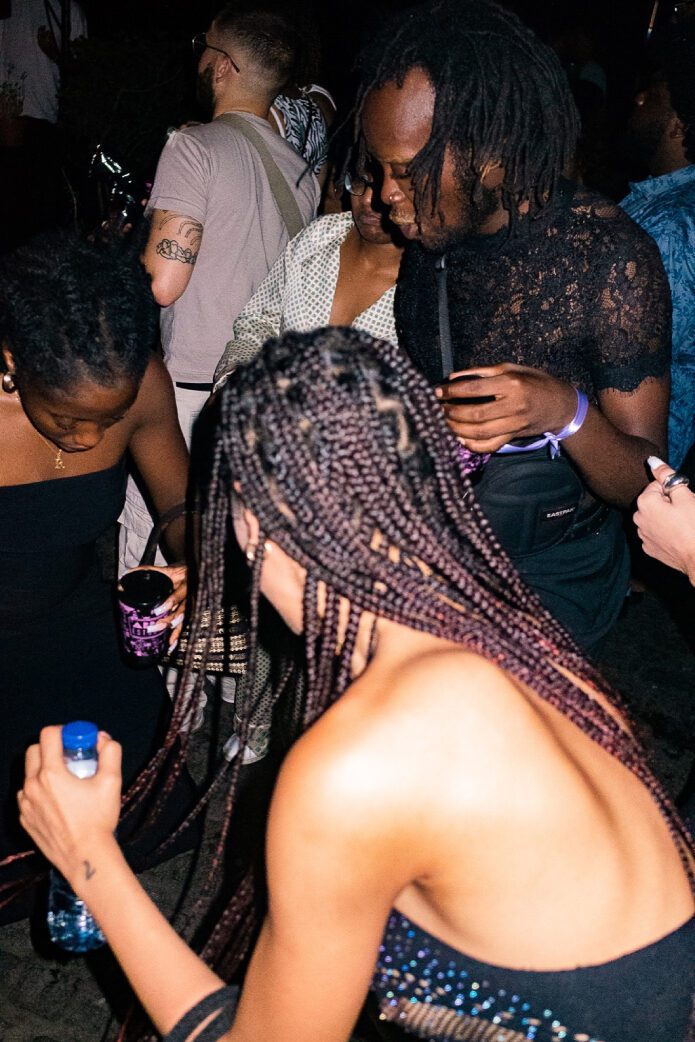
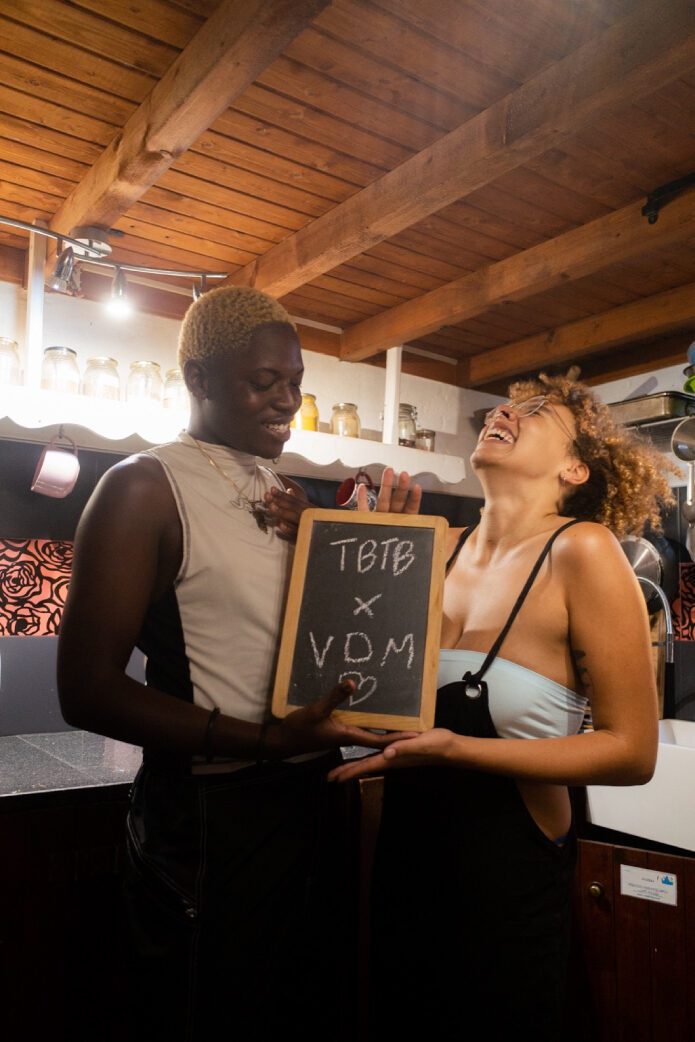
Furthermore, relying on the goodwill of larger venues is not always smooth sailing. In the aftermath of 2020’s protests, companies became eager to display their support for racial equality in fear of being identified as part of the problem. However, for some, virtue signalling took the place of any meaningful commitment to action. For Jesu and the project, this performative activism had real consequences. “It’s been difficult, one of the venues in Lisbon seemed super keen to work with us at first but then they started pressuring me to increase ticket prices and making threats like, ‘We’re only going to open the club if you can guarantee 800 euros profit.’ I explained the reasons I keep ticket prices low, which is to keep my events accessible and they just ignored me and kept on pressuring. Eventually, I was just like, ‘Nah I can’t do this,’ so I decided to postpone the event and look for a new venue. I was so stressed out because I had already advertised the event and I hate letting people down.” However, through the hardship Jesu realised the power of the community he had built, “I had a conversation with a friend and he told me to allow myself to be vulnerable and explain the situation with the people who support the project. He told me that people would understand and that what I was doing was right because not everyone would put their values and their community over profit and money. So I listened to him and he was right, people took it well and understood.”
Leading with integrity when choosing partnerships has served Jesu well, allowing the project to reach new heights. In September 2022, the project held their own stall at Lisbon’s Festival Iminente, an annual arts and culture festival held in Portugal’s capital city. During the festival, TBTB sold a ‘Lisbon Black Guide’ zine which highlighted safe spaces and local community spaces using the work of queer Black artists. Working laterally with dedicated community organisations also allowed the project to hold their largest event to date, a four day forest yoga retreat held in the Portuguese countryside – especially for queer Black artists. Speaking about the event, Jesu explains where the idea came from, “My friend came to me with this idea one day. They were born in but then their mom is Portuguese so they moved to a place in the countryside when they were young and their parents built a yoga retreat. They had always wanted to do something for Black creatives so they asked me what I thought of the idea and obviously I was really excited by it.
“In the city, life comes at you fast and it feels like you can’t get any rest, there’s just constant stress, stress, stress. So it was amazing to be able to open up this space for people in our circle as a sort of trial run for the event on a larger scale. We got everyone’s coach tickers and then we went down for four days. We held creative workshops and yoga workshops. We recorded a podcast, we had roundtable talks and meditation and everyone got the chance to explore the nature surrounding the place and unwind. It was a real reset and by the time it was done, no one wanted to leave.” For those most marginalised by life, self-care is essential to promoting good mental health and happiness. Knowing this, TBTB was able to subsidise costs so that the whole retreat cost attendees just 40 Euros, once again proving that accessibility as at the heart of Jesu’s work.
Looking to the future, Jesu’s plans for TBTB are as ambitious as ever, “I feel like sometimes it’s hard for me to see my work from an outside perspective because I started it as a passion project rather than a for-profit business, but when people come to me and say like how much the project impacted them, that’s when I realise that I’m doing something real. With TBTB I just want to provide even more, I want to go beyond providing safe spaces in nightlife and I want to support artists from low income backgrounds with some sort of financial aid. I think my biggest goal with this project is opening like a cultural space. That way I would be able to set all of the boundaries on my own terms and make sure that the space truly caters for those we aim to serve.” With events already in the works for 2023, Jesu is booked and busy and determined on his mission to continue building community wherever it is needed, “I feel like the whole premise of the project is I’m just doing whatever I think I needed while growing up. I needed a place like this and I’m so glad I can be it for someone else.”
Visit The Blacker the Berry Project’s official website for more information.
